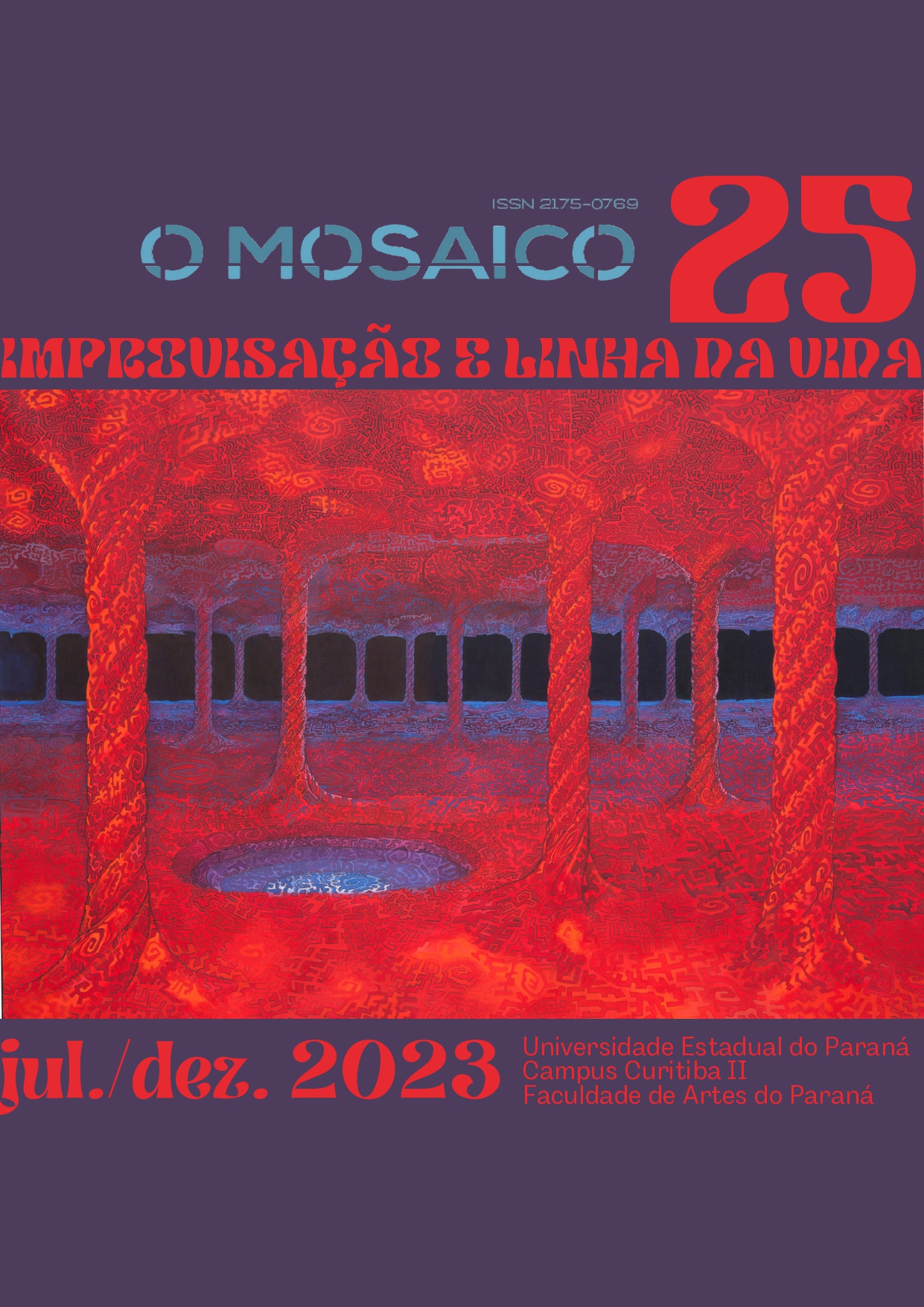Idiomatic Improvisation over anamorphic harmony
rhythm as catalyst of melody and harmony
DOI:
https://doi.org/10.33871/21750769.2023.17.2.7807Keywords:
Idiomatic Improvisation, Timeline, Phase-shifting by rhythmic additive process, Live looping, Harmonic anamorphismAbstract
In this article, we have reported idiomatic improvisation procedures with timeline applications taken from the Rhythmic Series by José Eduardo Gramani and rhythmic phase-shifting processes developed by Steve Reich, Michael Udow and Cesar Traldi by means of live looping techniques. The idiomatic improvisation, in this context, was subordinated to the harmonic changes engendered by the rhythmic aspect. Laboratories were conducted with a live looping workflow in the DAW Reaper to manage the sound material, submitting timelines taken from the Series to phase-shifting by rhythmic additive process, to lay a comping base. The creation and performance of an audiovisual artistic product and its analysis, and the tangency with the anamorphic visual art of Patrik Proško were generated, which are the result of a master's paper in which methodology specific to the field of research in arts was adopted. Visual tools were used for the analysis of the piece generated in laboratory, such as Sonic Visualiser. Finally, it was considered that rhythm became a catalytic element of harmony and improvisation, in turn generating harmonic anamorphism. The innovative factor in this work lies in the combination of rhythmic concepts and live looping techniques, engendering a new artistic construct.
Downloads
Downloads
Published
How to Cite
Issue
Section
License
Copyright (c) 2023 O Mosaico

This work is licensed under a Creative Commons Attribution-NonCommercial-ShareAlike 4.0 International License.
The authors retain the copyright, when licensing their production in the journal O Mosaico, which is licensed under a Creative Commons license. When submitting the work, and upon acceptance, the author assigns his/her copyright for publication in the journal. Readers can download, print and use the articles published in the journal, as long as there is always an explicit mention to the author (s) and to the O Mosaico, and no changes to the original work are allowed. When submitting an article to the journal O Mosaico and after accepting it for publication, the authors allow, without remuneration, to pass the following rights to the journal: the first edition rights and the authorization for the editorial team to transfer, according to their judgment, this article and its meta data to indexing and reference services.

